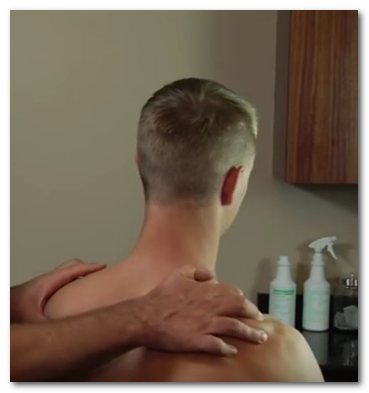A nerve can get excessively pressurized due to many reason including trauma, age, incorrect posture or obesity. When this pinched nerve is in the shoulder, it causes pain in any particular area of the body. It is also accompanied by tingling sensation and numbness in the affected area. Initially these symptoms appear and disappear again and again, but later they become permanent. This condition normally involves neck injury or back pain, but any nerve of the body can be involved.
Risk factors
Pinched nerve condition is associated with many risk factors which can include:
- Pregnancy is a common reason of weight gain and water retention, which can cause pinched nerve in some area of the body especially around the abdomen and pelvis.
- Excessive weight gain and hypothyroidism are also a major risk factor for this condition. Hypothyroidism causes sudden weight gain and water retention both, which can cause the nerve to compress.
- Arthritis or disc herniation is also another risk factor which can cause nerve compression due to displacement or deformation of the bones.
Symptoms
The symptoms of a pinched nerve can either be permanent or temporary. The common symptoms include:
- Pain: A pinched nerve in the shoulder typically gives a burning sensation in the region which further spreads to whole of the upper limb and is accompanied by pain. An affected person can also experience muscle spasms in the associated limb. Pain is a natural reaction of the body to some abnormal processes occurring in the body. If the pain lasts longer than several days, this may be due to some permanent damage to the nerve.
- Tingling and numbness: A pinched nerve commonly gives you a sensation of a ‘sleeping arm’ or the sensation of light continuous strokes by pins, known as tingling. These two are common signs of nerve compression in any part of the body. These sensations may be permanent or irregular, depending on the extent of damage caused to the nerve by compression.
- Weakness: This condition is also accompanied by weakness of the affected limb or arm. You may feel weakness in the shoulder muscle, making it difficult for you to lift or move the arm. You might not even be able to take your hand above your head. If the weakness gets severe and persists for longer time, you may need to consult your doctor regarding the same.
Diagnosis
Diagnosis of a pinched nerve is made by taking proper history and recording the subjective and objective symptoms. Generally, these procedures are enough to get to a diagnosis of pinched nerve. In some cases, some additional investigations may also be required.
An MRI or CT scan may be required to diagnose pinched nerve in the neck and shoulder blade region. Alternatively, EMG (electromyography) can also be done to confirm the diagnosis and estimate the extent of damage to the nerve.
Treatment
When you are diagnosed with a pinched nerve in the shoulder, there are various treatment modalities which should be opted, including the home remedies and medications both. The common management options include:
- Rest: Providing complete rest to the affected area can help you relieve the condition. While sleeping, try to sleep on your back to avoid any more pressure on the affected shoulder and limb. Complete rest means avoiding any movements of the affected arm.
- Hot and cold compression: Heat and cold compression together means alternating compression of both types. Apply ice pack to the affected shoulder for 15 minutes, followed by application of hot water bag for 15 minutes. Continue this procedure as many times as possible to get quick relief from the condition.
- Medications: you can opt for various over-the-counter medications to get relief from the pain, which includes the painkillers, while your doctor can also prescribe you some medications specific for the nerve pain. If you have associated muscular cramps and muscle pain, muscle relaxants can also be prescribed for the same.
- Surgery and injections: Injections are administered for severe nerve pains. Cortisone injection is helpful for the nerve pain. Surgery is considered as the last resort if no other treatment option works. Surgery is done for decompression of the nerve which can be done by placing an obstruction between the nerve and the compressing element. If it is an overgrown or dislocated bone, it should be trimmed or restored in its original position according to the need of the situation. Proper analysis of the condition of all the structures around the area is important before proceeding to surgery.
- Other methods: Some other ways to relieve pain and discomfort include physical therapy, acupuncture and weight loss. Physical therapy provides proper movements of the muscles in the affected area and thereby promoting their normal action and reducing the numbness. Acupuncture is done to relieve pain. Correct body posture is also very important to get rid of the pinched nerve.

